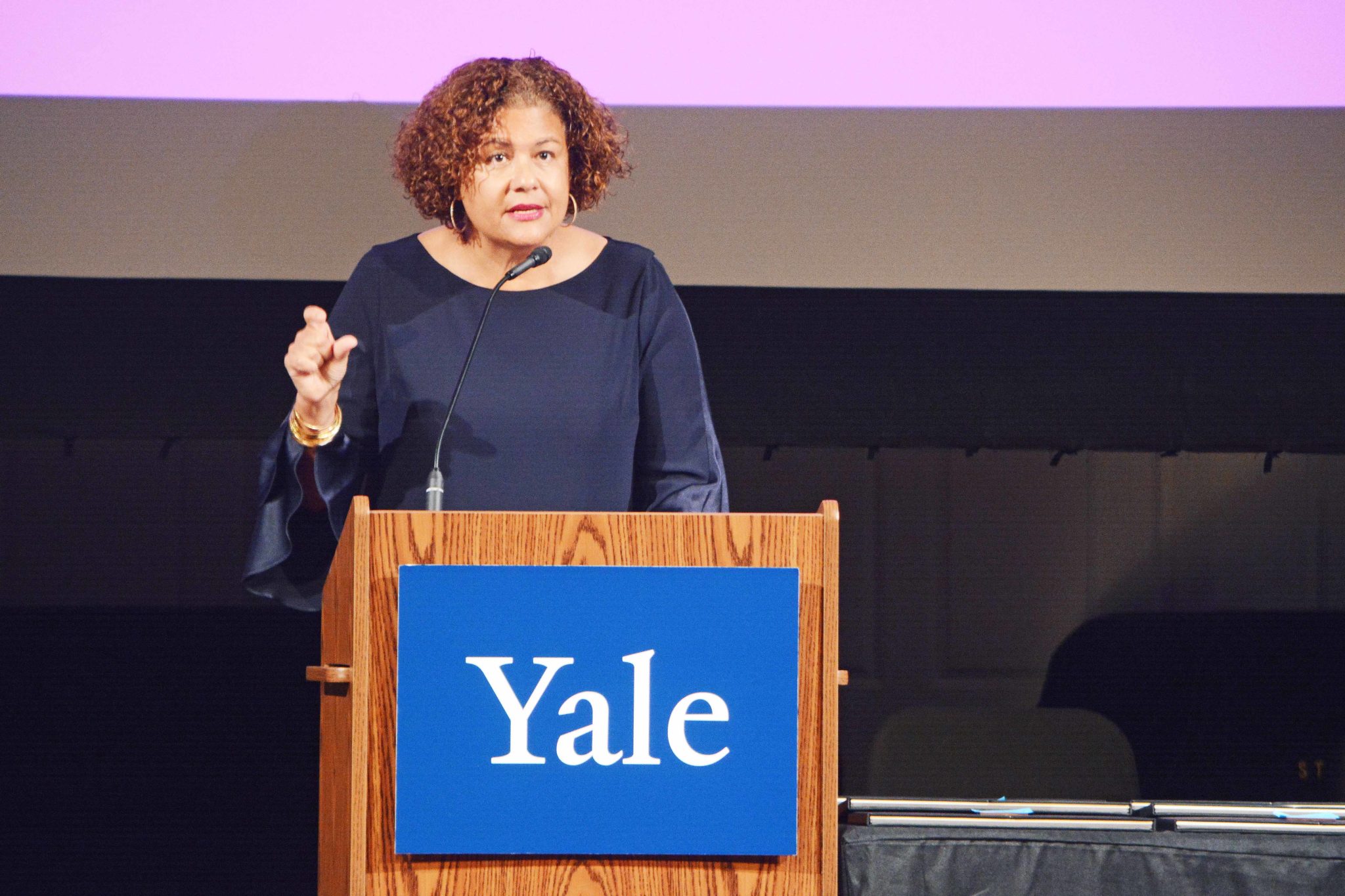
Windham-Campbell
After hearing poet Elizabeth Alexander ’84 lecture about her life and her motivations to write, University President Peter Salovey seemed almost at a loss for words.
“Your words were comforting, evocative and amazing,” he said in a speech following Alexander’s lecture. “I can barely concentrate on what I am supposed to do here.”
Alexander, a former Yale professor, addressed a crowd of approximately 300 in Sprague Memorial Hall this Wednesday. Alexander’s lecture, entitled “Why I Write,” was the keynote address for this year’s edition of the Windham-Campbell Prize Festival, a three-day celebration of writing held on Yale’s campus. Her lecture, which was greeted with a standing ovation, will be published as a book next year by Yale University Press. She was introduced by former Yale colleague, the poet Claudia Rankine.
In her speech, Alexander noted that, among other motivations, her writing career was inspired by a graduate seminar she took during her undergraduate years at Yale. In that class, she explained, she met some of her most beloved mentors, specifically National Book Award winner Gloria Naylor GRD ’83 and literature professor Michael Cooke ’57.
Naylor once gave Alexander a piece of advice that stuck with her, she said in the speech: “If you bring forth what is within you, it will save you. If you do not bring forth what is within you, it will destroy you.”
During the lecture, Alexander used the phrase “I write because” as a refrain to narrate her incentives for producing poetry and prose.
To conclude her speech, Alexander said, “Here is why I write: … I write to outrun death … I write to go somewhere. I write to take you with me … I write to feel. I write to invite you into that feeling … I write to be fully alive.”
Eamonn Smith ’21, who attended the lecture, said he found Alexander’s speech stirring and rhythmically appealing.
After the lecture, Salovey distributed the Windham-Campbell Prizes to the eight recipients for 2018: dramatists Lucas Hnath and Suzan-Lori Parks, fiction authors John Keene and Jennifer Nansubuga Makumbi, nonfiction writers Sarah Bakewell and Olivia Laing and poets Lorna Goodison and Cathy Park Hong. The award comes with an unrestricted $165,000 grant.
Salovey, when awarding the prizes, said that the recipients represent the richness and diversity of writing in the English language.
“I am struck by the intelligence that radiates from the work of this year’s writers,” Director of the Windham-Campbell Prizes Michael Kelleher told the News. “While each of them is completely unique, they share in common a desire to hone in on the truth in their work. … They don’t flinch when confronted with the sometimes awkward truths and untruths of national and transnational history, of feelings difficult to feel and express, or of big ideas,” he said.
In selecting speakers to deliver the Windham-Campbell Lecture each year, Kelleher explained that he looks for distinguished writers who not only “stand comfortably alongside the best writers in the world” but also whose presence would contribute to an environment of celebration and occasion.
“[Alexander] checks all the boxes, with the added bonus that she is a beloved former faculty member,” he said.
The first Windham-Campbell Awards were held in 2013.
Skakel McCooey | skakel.mccooey@yale.edu







